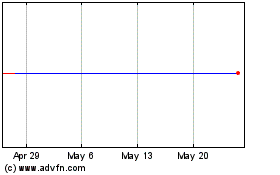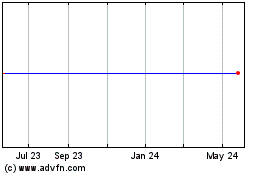UPDATE: Court Reverses Microsoft Win In Patent Case, But Offers New Law On Damages
January 04 2011 - 3:21PM
Dow Jones News
A federal appeals court Tuesday restored a jury verdict that
Microsoft Corp. (MSFT) infringed a patent related to combating
software piracy, but ruled that the software giant was entitled to
a new trial on damages.
Though Microsoft lost on the patent at issue in the case, it may
have won a larger legal battle because the court's ruling could be
used to limit the size of monetary damages in patent-infringement
cases.
"This is an important and helpful opinion with respect to the
law of damages, and it may signal the end of unreasonable and
outsized damages awards based on faulty methodology," said David
Howard, Microsoft's deputy general counsel, in a statement.
The U.S. Court of Appeals for the Federal Circuit ruled in a
59-page opinion that the jury's verdict in favor of the patent
holder, security software maker Uniloc USA, was supported by
substantial evidence. It said a Rhode Island federal judge erred in
2009 when he tossed out the jury's verdict and ruled for
Microsoft.
Uniloc USA Chief Executive Brad Davis said Tuesday's decision
"illustrates how large corporations like Microsoft have knowingly
infringed on our technology for financial gain."
However, the appeals court also said the jury's $388 million
award to Uniloc for Microsoft's infringement was "fundamentally
tainted," making it necessary to conduct a new trial on the amount
of damages Microsoft has to pay.
In a lengthy legal discussion, the court found fault with a
method, known as the "25% rule," that is commonly used by
plaintiffs to approximate the amount of damages owed in patent
infringement cases.
The rule suggests that a company practicing someone else's
patent should pay a royalty rate that is equivalent to 25% of its
expect profits on the product that incorporates the patented
technology.
The court said the method was "fundamentally flawed" and
inadmissible because it failed to tie a reasonably royalty rate to
the facts of a given case.
Edward Reines, a patent attorney with Weil, Gotshal & Manges
LLP, said the ruling "is a huge change in the law that overturns
existing precedent and calls many existing damages verdicts into
question."
"The Federal Circuit has been moving toward confining excess
damages in patent cases and this is another step in that
direction," said Reines, who is not connected to the case.
Uniloc's patent deals with technology for software registration
systems that deter the copying of software.
The Irvine, Calif.-based company filed suit against Microsoft in
2003, alleging the product activation feature on Windows XP and
other Microsoft products infringed its technology.
It initially sought $560 million in damages.
Uniloc's Davis said the company has similar lawsuits pending
against Adobe Systems Inc. (ADBE), McAfee Inc. (MFE), Symantec
Corp. (SYMC) and Sony Corp. (SNE, 6758.TO).
He expressed disappointment at the appeals court's rejection of
the $388 million damages award, but said the company would work
with the court's ruling.
The case is Uniloc USA v. Microsoft, 2010-1035.
-By Brent Kendall, Dow Jones Newswires; 202-862-9222;
brent.kendall@dowjones.com
Mcafee (NYSE:MFE)
Historical Stock Chart
From Jun 2024 to Jul 2024

Mcafee (NYSE:MFE)
Historical Stock Chart
From Jul 2023 to Jul 2024
